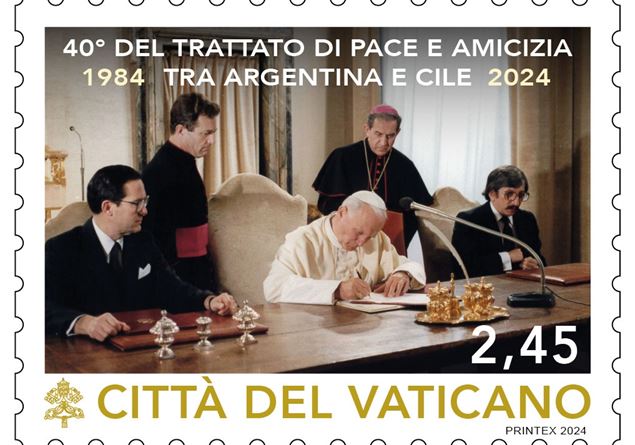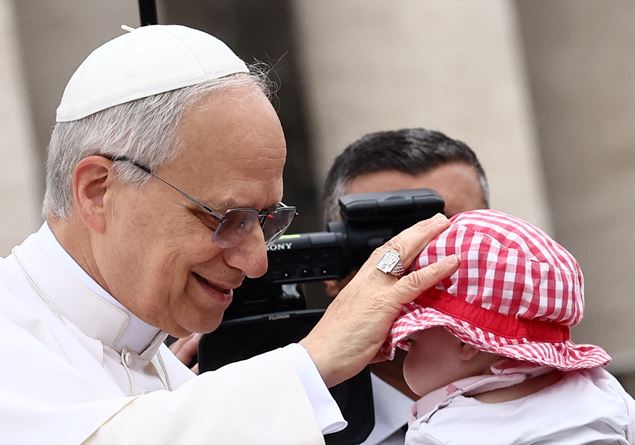Just over 25 thousand people for the first general hearing of Pope Leone. Pope Prevost, on the anniversary of the first month from Francesco’s death, resumes the cycle of catechesis opened by his predecessor on the theme of “Christ our hope”. It focuses on his meditation on the explanation of the sowing parable, from the Gospel of Matteo. “A somewhat particular parable, because it is a kind of introduction to all parables.” In this “story”, he explains, “we can recognize the way of communicating Jesus, who has so much to teach us for the announcement of the Gospel today. Each parable tells a story that is taken from everyday life, yet it wants to tell us something more, reflects us with a deeper meaning. The parable gives birth to questions in us, invites us not to stop apparently. In front of the story that is told or the image that is delivered to me, can I ask myself: where am I in this story? What does this image say to my life? In fact, the term parable comes from the Greek verb paraballein, which means throwing before. The parable throws me a word that causes me and pushes me to interrogate me. The parable of the sower speaks precisely of the dynamics of the Word of God and the effects it produces. In fact, every word of the Gospel is like a seed that is thrown into the ground of our life ».
But what does the ground mean? Pope Leone explains that “it is our heart, but it is also the world, the community, the Church. The Word of God, in fact, fruitful and provokes every reality. At the beginning, we see Jesus who leaves the house and around him a large crowd gathers. His word fascinates and intrigues. Among people there are obviously many different situations. The word of Jesus is for everyone, but operates in each in a different way. This context allows us to better understand the sense of the parable ». The sower is “original”, says Pope Prevost because he does not worry where he throws the seed, does not make calculations. Indeed also throws the seed where it seems less likely to take root and bring fruit. «This attitude amazes those who listen and lead to asking themselves: why? We are used to calculating things – and sometimes it is necessary -, but this is not valid in love! The way this “waste” sower throws the seed is an image of the way in which God loves us. It is true that the fate of the seed also depends on the way in which the soil welcomes it and on the situation in which it is located, but first of all this parable Jesus tells us that God throws the seed of his Word on every type of soil, that is, in whatever our situation: sometimes we are more superficial and distracted, sometimes we let ourselves be taken from enthusiasm, sometimes we are oppressed by the concerns of life, but there are also the moments in which we are available and welcoming. God, therefore, tells us the parable “is confident and hopes that sooner or later the seed flourishes. He loves us like this: he does not wait for us to become the best ground, he always gives us generously his word. Perhaps seeing that he trusts us, the desire to be a better terrain will be born in us. This is the hope, founded on the rock of the generosity and mercy of God ».
Speaking of the way in which the seed brings fruit, moreover, Jesus also speaks of his life. «Jesus is the word, it is the seed. And the seed, to bring fruit, must die. Then, this parable tells us that God is ready to “waste” for us and that Jesus is willing to die to transform our life ». The image of Van Gogh’s painting resumes: the sower at sunset. «That image of the sower under the scorching sun also tells me about the fatigue of the farmer. And it strikes me that, behind the sower, Van Gogh represented the already mature wheat, “he underlines. «It seems to me just an image of hope: in one way or another, the seed brought fruit. We don’t know how, but it is so. At the center of the scene, however, there is no sower, which is on the side, but the whole painting is dominated by the image of the sun, perhaps to remind us that it is God who moves the story, even if sometimes it seems to us absent or distant. It is the sun that warms the clods of the earth and matures the seed. Dear brothers and sisters, in which situation of life today is the Word of God reaching us? We ask the Lord for the grace to always welcome this seed which is his word. And if we realized that we are not a fruitful ground, let’s not be discouraged, but we ask him to work on it to make us become a better terrain ».








